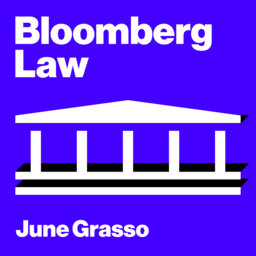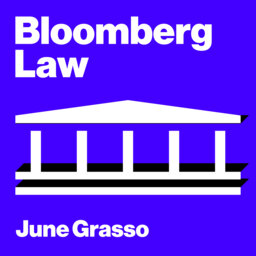Nippon, US Steel Sue Biden & Barr Steps Down
John Kabealo, a Washington DC attorney who specializes in cross-border transactions, discusses Nippon Steel and United States Steel suing the Biden administration over President Biden’s blocking of their nearly $15 billion deal. Kathryn Judge, a professor at Columbia Law School and an expert on banking and financial regulation, discusses Michael Barr stepping down from his role as Fed Vice Chair for Supervision. June Grasso hosts.
 Bloomberg Law
Bloomberg Law


